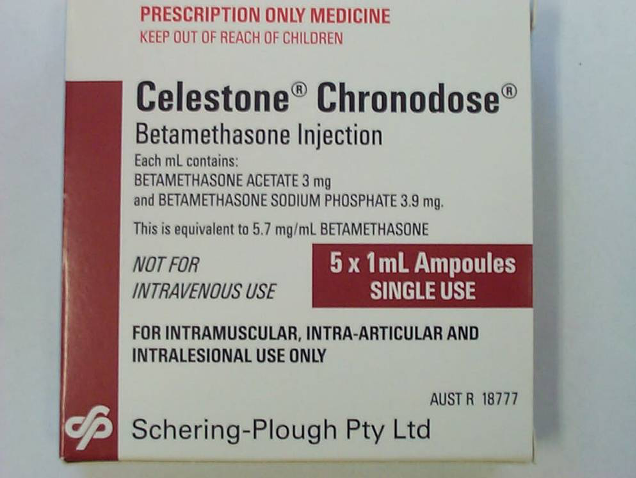Part 3 of a 4 part blog series by Dr John Orchard
The peer-review system doesn’t like opinions which challenge the status quo
This piece is a blog because, sadly, it is very hard to get negative opinion pieces regarding IAC (intra-articular cortisone) for knee OA through peer review, as there are too many medical experts who “assume” cortisone injections must be beneficial. Not only orthopaedic surgeons, but rheumatologists (in particular), GPs and even sadly (some but fewer) sport & exercise medicine physicians have used IAC for knee OA for years and don’t want to synthesise the only clear conclusion you can draw from the literature in 2020: IAC is harmful for knee OA in the longer term. I can write this in a Blog, but as soon as a “peer” reviews it, they insist on “balancing arguments to illustrate the benefits of cortisone” (as if “balancing arguments” might outweigh making your problem worse in the longer term). I’ll have to say what I really think in a Blog instead, with a high degree of confidence that I’ll be on the right side of history. I repeat from the previous Blog episode: There are no studies showing any medium to long term benefit of IAC for knee OA; all of the long-term effects are harmful. Interestingly there was apparently one systematic review last year showing a medium term benefit (which I became aware of because a peer reviewer insisted that I had to refer to it “for balance”) and when I actually read the study it was clear that the data was fictitious or in error. After a colleague and I wrote a letter 1, this study has now been retracted (https://pubmed.ncbi.nlm.nih.gov/29642145/).

Cortisone for knee OA: OK 5 years ago
Five years ago, it would have been a reasonable position to question whether there was any proof to back up the theoretical viewpoint that IAC might be harmful, even though this is not a new concept2. So I can’t really take much issue with, for example, the OARSI knee OA guidelines which recommended in 20143 IAC (cortisone injection) without qualification for knee OA. I also don’t take any issue with the 2015 Cochrane review of Juni et al4 investigating IAC for knee OA. This reported likely mild benefit of very short duration based on generally low-quality (high risk of bias studies) and admitting no long-term data.
What’s with the incorrect guidelines of today?
However, I do have a big, big problem with the updated OARSI guidelines 20195 which still recommend IAC for knee OA. The major rheumatological society guidelines also get it wrong by currently recommending IAC for knee OA 6. I’m perplexed by Tim McAlindon in particular, who is a seminal author in the field of knee OA. He is the primary author of the best study yet published about IAC for knee OA: a well-powered RCT between IAC and placebo injection with 2 year follow-up7. The IAC did not beat placebo injection on any measure at any stage of this study, yet was associated with significantly greater cartilage degeneration. I take my hat off to Tim McAlindon for this terrific study (one of my favourite of the decade) yet I am gobsmacked that he was a senior member of OARSI which still recommended IAC for knee OA two years later. If they had to recommend an injection in 2019, why did they not recommend saline instead, which McAlindon himself has proven offers all of the benefits of cortisone but without the cartilage degeneration? It’s a rhetorical question of course, because it would be unethical to deliberately recommend a placebo, yet it is somehow more ethical to recommend an injection that is out-performed by placebo! A further debate could be around the non-recommendation of PRP (platelet rich plasma) injections for knee OA. It is perhaps a reasonable position to not recommend PRP injections and say “the jury is still out”, but what about when PRP beats IAC in a head to head RCT?8 How is it then possible to recommend the loser of the RCT (cortisone) but not recommend the winner? Or vice versa, say that the jury is still out on the winner, but then claim that the loser is definitely an effective treatment? Yet, the plethora of current guidelines keep doubling down on cortisone when it is clear that it loses to any comparator in the long-term, because it is harmful in the long term.
It is possible to Dissent
I have been in the difficult position of being on a consensus panel in Australia for the Osteoarthritis Clinical Care Standard Topic Working Group, which in 2017 wrote “Intra-articular injections may be repeated every 3 months; evidence suggests that repeat injections are effective and do not alter disease progression”. As this was shortly after the McAlindon RCT finding that they were not only ineffective but they did cause cartilage deterioration, I was unhappy to sign off as a contributing author which approved of the statement. (see Figure below).

Is it time we took a stand? Wait for next week’s final blog instalment, which summarises what I recommend happen in the future.
Author and Affiliations:
John Orchard @DrJohnOrchard AM MD PhD FACSEP FFSEM (UK) FACSM
References
- Jomaa M, Orchard J. Letter to the Editor: Intra-articular injection of methylprednisolone for reducing pain in knee osteoarthritis: A systematic review and meta-analysis Medicine Correspondence Blog: https://journals.lww.com/md-journal/Blog/MedicineCorrespondenceBlog/pages/post.aspx?PostID=99; 2019 [
- Chandler GN, Wright V. Deleterious effect of intra-articular hydrocortisone. Lancet 1958;2(7048):661-3.
- McAlindon TE, Bannuru RR, Sullivan MC, et al. OARSI guidelines for the non-surgical management of knee osteoarthritis. Osteoarthritis Cartilage 2014;22(3):363-88.
- Juni P, Hari R, Rutjes AW, et al. Intra-articular corticosteroid for knee osteoarthritis. Cochrane Database Syst Rev 2015(10):Cd005328.
- Bannuru RR, Osani MC, Vaysbrot EE, et al. OARSI guidelines for the non-surgical management of knee, hip, and polyarticular osteoarthritis. Osteoarthritis Cartilage 2019;27(11):1578-89.
- Guermazi A, Neogi T, Katz J, et al. Intra-articular Corticosteroid Injections for the Treatment of Hip and Knee Osteoarthritis-related Pain: Considerations and Controversies with a Focus on Imaging. Radiology 2020:Published Online:Oct 20 2020.
- McAlindon TE, LaValley MP, Harvey WF, et al. Effect of Intra-articular Triamcinolone vs Saline on Knee Cartilage Volume and Pain in Patients With Knee Osteoarthritis: A Randomized Clinical Trial. Jama 2017;317(19):1967-75.
- Elksniņš-Finogejevs A, Vidal L, Peredistijs A. Intra-articular platelet-rich plasma vs corticosteroids in the treatment of moderate knee osteoarthritis: a single-center prospective randomized controlled study with a 1-year follow up. Journal of orthopaedic surgery and research 2020;15(1):257.